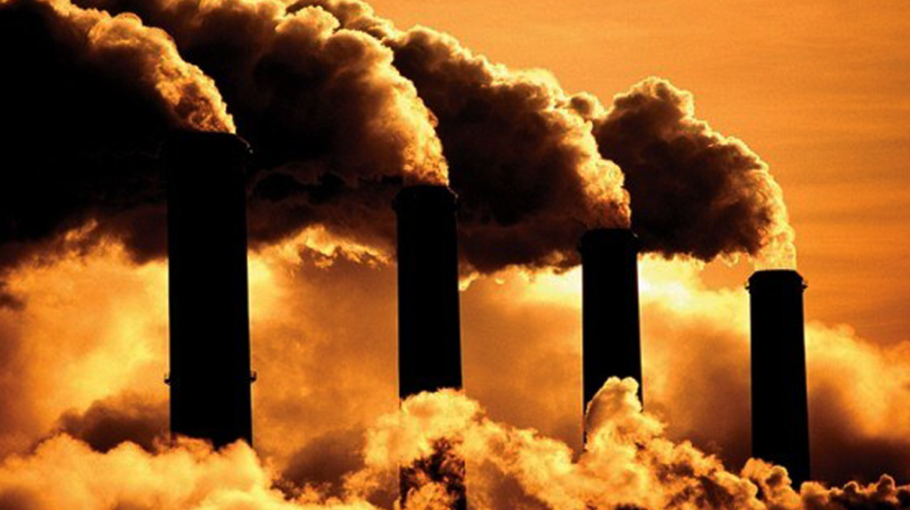Clean air law draft gathers dust
Fresh law enactment imperative

Although the air pollution issue is stated in some environmental laws, enactment of a separate law is now imperative to curb severe air pollution in the country.
The government had also felt the need and drafted the ‘Clean Air Act’ aiming to regulate the country’s air quality and reduce air pollution. But the draft law has been gathering dust for years.
Experts on public health, environmentalists and rights activists want that the government should enact the ‘Clean Air Act’ soon as the pollution must be controlled before it goes beyond the reach. The authorities concerned should take stern measurers and even should apply laws to reduce the air pollution and save the public health.
Muhammad Anowarul Hoque, secretary general at Save Our Sea, said that enactment of ‘Clean Air Act’ is now a timely demand after a recent study found air pollution to be a massive health crisis.
The study on air pollution was published by the Center for Atmospheric Pollution Studies (CAPS) of Stamford University Bangladesh.
Prof Dr Ahmad Kamruzzaman Majumder, head of the Stamford university’s environmental science department and chairman of CAPS who led the research team on air pollution, said the air has become toxic for citizens, especially city- dwellers. Thousands of people die every year in the country due to exposure to both ambient and indoor air pollution as well as air pollution-related diseases. So, the air pollution must be controlled to save the public health.
The High Court on February 1 blasted the authorities concerned for their failure in controlling the air pollution in Dhaka and the surrounding areas. “Public health is at serious risk due to the air pollution,” the HC bench of Justice Md Ashfaqul Islam and Justice Md Iqbal Kabir said while hearing a writ petition.
Bangladesh is one of the most polluted countries, for its air is full of particulate matter, while Dhaka is on the list of world cities with the worst air quality. However, its adjoining district Gazipur has surpassed the capital in air pollution, according to the CAPS study.
Alongside Dhaka and Gazipur, the air pollution level in different districts and cities has reached an extreme level due to uncontrolled discharge of dust from construction projects, black smoke emission from vehicles and brick kilns, road digging, renovation work, small and large industrial plants, and incineration of garbage.
Although the experts and environmentalists have been demanding a separate law to curb air pollution, the government prepared a rule in this regard.
The Environment, Forests and Climate Change ministry has prepared the draft of the ‘Air Pollution Control Rules, 2021’. The Rules were drafted as per Section 20 of the ‘Bangladesh Environment Conservation Act, 1995’.
An official of the ministry said that the Rules will be finalised within a few weeks after the completion of the necessary process.
Saber Hossain Chowdhury, chairman of the parliamentary standing committee on the ministry, said the framing of Rules is not enough, a separate law should be enacted to reduce the air pollution.
Syeda Rizwana Hasan, chief executive of Bangladesh Environmental Lawyers Association (BELA), said that as per the country’s Constitution, the government must work not only to protect the environment but to improve it too. The draft of ‘Clean Air Act’ has been lying in hibernation since long .The government must enact it as soon as possible, she said.
Echoing the views, Gaous Pearee, Director at WBB Trust, said that air quality must be controlled even through enforcing strict legal action. It would be better if the government moves for the enactment of the ‘Clean Air Act’, she added.
Md Ziaul Haque, a director of the Department of Environment (DoE), said the ‘Air Pollution Control Rules, 2021’ was finalized keeping most of the points presented by the DoE, BELA and the BUET. “The environmental law is strong, but we can’t apply it properly for various reasons. As the ongoing mega projects will be finished by 2022, we hope the air quality will improve a bit from next year,” he said.
BELA and BUET prepared the draft law ‘Clean Air Act’ and presented it to the DoE three years ago. Later, the ministry uploaded it on its website for public opinion.
The draft suggested the DoE for preparing a time-bound National Air Quality Management Plan. The draft also proposed constituting a 29-member advisory council with representatives from different ministries and departments, to oversee and make recommendations to implement the plan.
It also suggested the provision of a maximum penalty of ten years imprisonment or fine or both as the punishment for violating the law. It was mentioned in the draft that if an offence is committed by any government agency, its head will be considered guilty of violating the law, and liable to face punishment accordingly.
Syeda Rizwana Hasan of BELA said that they prepared the draft law following DoE’s request.



